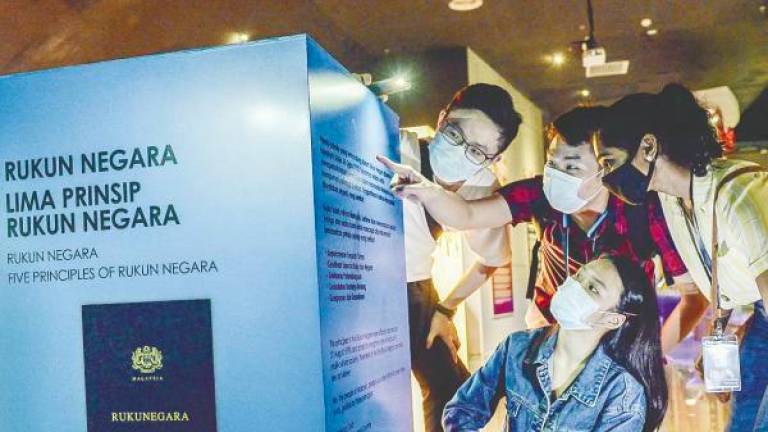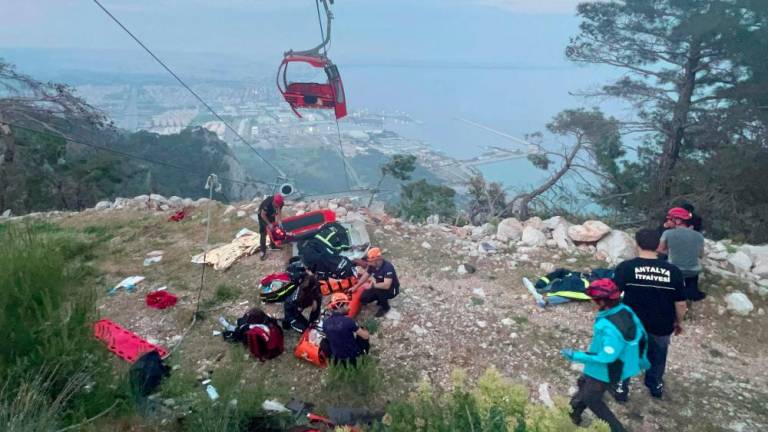NO man or woman is an island. So the saying goes.
Teamwork and working together with others is what life is all about, beginning from the basic unit of society, the family unit, to every organisation of human beings, right up to society as a whole.
Working together implies the group discussing, throwing in different ideas and views (no matter how diverse), but eventually percolating those that best meet the common goals and objectives. And of course, all must be in the context of what is good and right for the larger majority, if not for all.
It is about acting in concert to arrive at an agreed to consensus.
This approach is certainly apt for decisions to be made in the family as much as it is an important imperative in the context of public governance.
Today, the Pakatan Harapan government has set down roots, so to speak, in the governance and the running of the country. The new compass has been set.
But, not unlike the case of piloting a vessel on the high seas, I learnt that one cannot just chart the details and the direction of the path to be taken, to set the vessel moving as per the configurations, and then sit back, and let the boat chug along on its own.
It is crucial to keep a keen eye on the behaviour of the untamed waters, the wind and weather, and any obstacles coming head on, including huge container ships, whose wake can be a big problem if not given a clear berth.
In public governance it is no different. In fact, it is even more important to be vigilant.
Sometimes, we see a tendency for the governing team to not act in concert.
Statements and “proposals” are loosely enunciated with inadequate rationale. Some are deemed to be bordering on the ridiculous. There are those that give the impression that things have not been well thought out and deliberated among a team, with objectivity and clarity of the purpose and goals. Some even give rise to concern and worry. And of course, it is undeniable that anything that is said and done in the very narrow context of parochial politics, inhibits that ability to view things in the context of society at large, and of the national interest.
While there is the need to give adequate time for those in public governance, to do what needs to be done (and there certainly is much to be done), it should not be ad infinitum. The housekeeping should be at the tail end by now. The good and proven policies and initiatives, which have served the nation well, should be continued and improved upon.
Of course, all policies, processes, and procedures for decision making and implementation, must be expeditously reviewed to prevent the possibility of, and giving room for, discretion and corruption (such as assigning decisions involving expenditure to one person [eg tenders]).
It is also observed that many want to be involved in perceived “popular” activities such as “investment promotion”, and “SME development. “Much of these inevitably result in those in administration, together with entourages, going all over the world to “promote Malaysia”. Even those whose constituency for governance is right here at home in Malaysia.
In fact, it was discovered that there were 32 agencies involved in “investment promotion”, with clearly unproductive overlapping of functions.
In the same vein, there were 15 ministries and 63 agencies doing work related to SMEs.
While it is laudable that so many are interested in “promoting” the inflow of investments, and the development of SMEs, there must be coordination of policies and strategies for coherence and effectiveness, and the optimisation of impact and benefits to the nation, and the SMEs and the entrepreneurs.
While this was what happened during the tenure of the previous government, the situation cannot be perpetuated.
Gone are the days for bloated support structures in ministries and departments, and freewheeling expenditure on unproductive activities.
There must be thorough cost and benefit analyses and studies done for every department and ministry before anyone introduces new initiatives and programmes ... especially those that involve awarding of contracts for things such as uniforms, transport, publications and such paraphernalia.
Perhaps we can ask what has happened to the “Khidmat Negara” programme?
Multi-millions were spent on the award of such contracts to various parties.
It is vital that all in the PH government avoid repeating or continuing the same culture of being less than responsible.
There is no real need for any “lawatan sambil belajar” (visiting while learning ... note the emphasis on “visiting”, with the element of “learning” being just a “by the by” ... an incidental.
The operating world has changed tremendously. The various challenges that will continue to confront nations will demand that those in public governance forge effective teamwork and effort to forge the necessary national resilience.
There is no room for jostling for public attention, petty bickering, or flexing of muscles and egos, or any off tangent action that detracts from collective effort and responsibility.
Everybody must speak and act in concert in public governance. We cannot have the “square pegs in round holes” syndrome. Nor can the country and people afford and tolerate any slackening in governance, which can have an unwarranted costly impact.
The new direction for governance has been set.
Now all must work collectively in the same direction to achieve the goals as expected by the rakyat.
Sejahtera Malaysia kita.
Tan Sri Rafidah Aziz believes in speaking from the heart, mincing no words. Comments: letters@thesundaily.com














